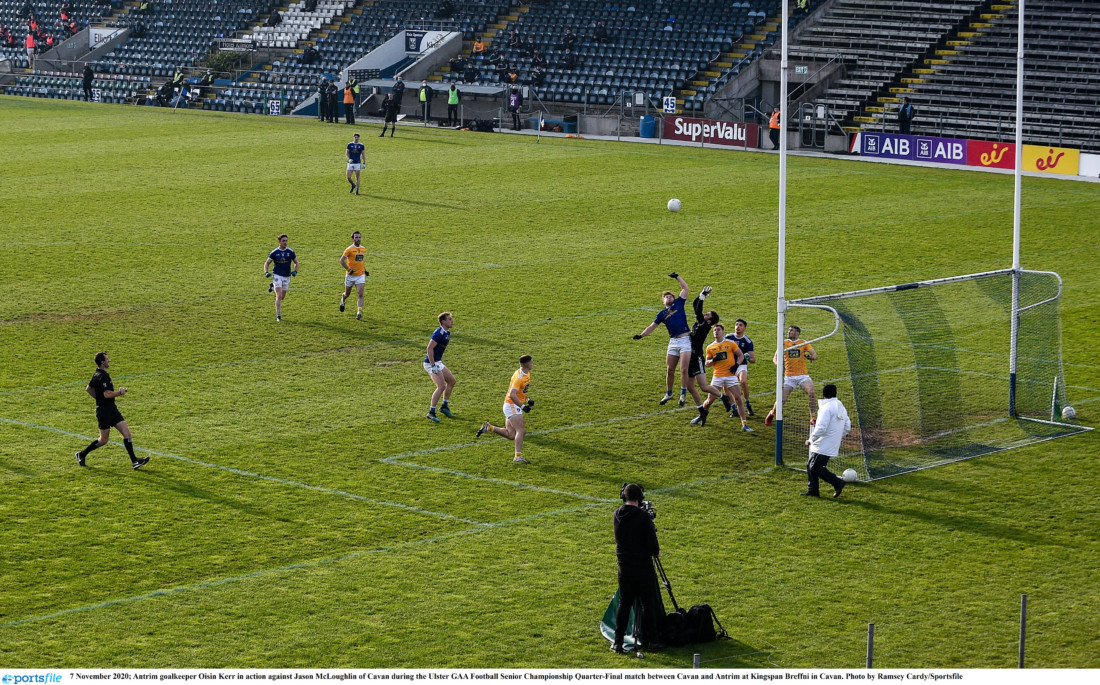THE ‘Hail Mary pass’ is now in most sports fan’s lexicon. A quick Google describes it as a last-second, long-shot attempt by a losing team to come from behind and win.
Apparently, in 1975 in the NFL, the Dallas Cowboys were trailing the Minnesota Vikings. The clock was winding down and quarterback Roger Staubach threw a 50-yard pass, which resulted in a miracle touchdown and an unlikely win for the Cowboys. Afterwards in interviews, he told reporters that he closed his eyes and said a Hail Mary.
Today, the phrase transcends sports and has become a term for anyone in any kind of trouble, but you had a small chance of getting yourself out of the tight spot.
But the 1975 appearance of Our Lady at an American football match was not the first. In fact, it seems she had been called upon decades previously. Way back in 1922, according to ESPN, after a miracle throw made by Notre Dame.
In the sport psychology world, we don’t deal so much with Hail Mary passes. We receive Hail Mary phone calls. Usually when a manager has reached the last decade of his season’s rosary. They usually come at the end of a season, when a team is about to be relegated. Or reach a final. Or are up against a team they struggle to beat. Or they want us to ‘fix’ the guy on the team who could make all the difference if only he could get his mindset right. We’re the longshot that coaches desperately hope will pay off.
Sport psychology is the final frontier in performance. We’re the chartered physiotherapists of the 1990s. There was a time that they were seen as an accessory only to be rolled out on the big days.
Slowly but surely, people are now realising that when people succeed, often the difference was some time spent on brain training and working on their mental game. I maintain that there isn’t much difference in the fitness of intercounty teams. The difference lies with the sideline, and with match and psychological smarts.
The phone call usually begins with the feeling that I’m either deflating the last balloon of hope for a manager about to be relegated, or I can feel the person on the other side of the call beginning to realise that I won’t be able to magically ensure his team wins the final. These are simple ethics for any decent professional. You cannot give unreal and false expectations.
What we can do in these situations is reinforce key messaging and perhaps allay some last-minute anxieties. Sometimes that’s enough to keep your nose in front, and it might indeed be remembered as the Hail May phone call that worked out. Sometimes too, it’s as effective as the man who downloads the Couch to 5K app, does one run and then his runners gather dust for three months and when he heads out to the Park Run, he’s no better off than the person who never did it at all.
Part of my job is working with both players and coaches to help them focus on the things that are the foundation to success, rather than on the emotions that go along with winning and losing. I help them regain control, and this in turn, can create a path to success.
It’s not a process that can be completed overnight, or with a snazzy PowerPoint presentation, or with a great speech. Expecting a sport psychologist to do this in one session is the same as expecting a strength and conditioning coach to give you a plan, do one one gym session with you and that you walk out stronger, fitter and leaner than you were when you strolled in an hour ago.
Key psychological skills need to be trained. Things like concentration, thinking habits, controlling your emotions don’t magically improve after a session with a sport psychologist. These skills are then used to help insulate yourself from the noise outside of the game. No more than the muscles in your body, the muscle in your head needs consistent and appropriate training too.
No matter the sport, the best coaches ensure mental skills are involved in every training session. They continually push their players out of their comfort zone by challenging their minds with decision-making, communication and new strategies.
Often, the last thing your team needs is to be forced to sit in a room with a sport psychologist when they’re already exhausted after a tough training session. Sometimes, the positive impact is felt when a coach allows the sport psychologist to help them find new ways of bringing in psychological skills to training. It can be as simple as having a trusted, confidential new pair of eyes of ears that can advise about how players are receiving a message.
Not every manager is open to that kind of scrutiny. Too many feel this is a criticism of their methods. Yet, some are happy to allow their control of a situation or a game to come down to a ‘Hail Mary.’
If you’re a coach, you need to ask yourself if psychology is integrated into all of your sessions. If you think it is, ask yourself if it’s appropriate and that you’re not doing or saying anything that could be detrimental to anyone’s mindset.
Ask yourself, when you plan out your training for the upcoming season, and when you chart up all the physical training sessions, have you made time for specific mental sessions as well?
If you’re not doing the above, you’re not giving yourself the best chance of surviving a relegation playoff or winning an important title. You’re not giving yourself a prayer.
Receive quality journalism wherever you are, on any device. Keep up to date from the comfort of your own home with a digital subscription.
Any time | Any place | Anywhere












